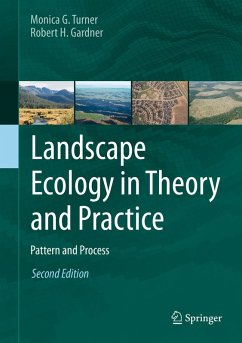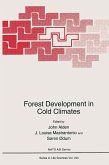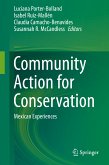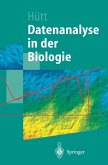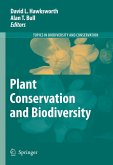This work provides in-depth analysis of the origins of landscape ecology and its close alignment with the understanding of scale, the causes of landscape pattern, and the interactions of spatial pattern with a variety of ecological processes. The text covers the quantitative approaches that are applied widely in landscape studies, with emphasis on their appropriate use and interpretation.
The field of landscape ecology has grown rapidly during this period, its concepts and methods have matured, and the published literature has increased exponentially. Landscape research has enhanced understanding of the causes and consequences of spatial heterogeneity and how these vary with scale, and they have influenced the management of natural and human-dominated landscapes. Landscape ecology is now considered mainstream, and the approaches are widely used in many branches of ecology and are applied not only in terrestrial settings but also in aquatic and marine systems. In response to these rapid developments, an updated edition of Landscape Ecology in Theory and Practice provides a synthetic overview of landscape ecology, including its development, the methods and techniques that are employed, the major questions addressed, and the insights that have been gained."
The field of landscape ecology has grown rapidly during this period, its concepts and methods have matured, and the published literature has increased exponentially. Landscape research has enhanced understanding of the causes and consequences of spatial heterogeneity and how these vary with scale, and they have influenced the management of natural and human-dominated landscapes. Landscape ecology is now considered mainstream, and the approaches are widely used in many branches of ecology and are applied not only in terrestrial settings but also in aquatic and marine systems. In response to these rapid developments, an updated edition of Landscape Ecology in Theory and Practice provides a synthetic overview of landscape ecology, including its development, the methods and techniques that are employed, the major questions addressed, and the insights that have been gained."
Dieser Download kann aus rechtlichen Gründen nur mit Rechnungsadresse in A, B, BG, CY, CZ, D, DK, EW, E, FIN, F, GR, HR, H, IRL, I, LT, L, LR, M, NL, PL, P, R, S, SLO, SK ausgeliefert werden.
From the reviews:
"Having a thorough textbook that explains the principles and techniques of landscape ecology is an important resource. ... This book takes a North American approach at an introductory level, filling a void in the landscape ecology literature. ... The discussion questions and recommended readings at the end of each chapter guide teaching and learning. ... The text is a real boon to professors and students. ... The book is a thorough treatment of the current activities of landscape ecology, and I recommend it highly." (Nancy E. McIntyre, Ecology, 83 (1), 2002)
"An ecologist's viewpoint on the theories and uses of a burgeoning multidisciplinary subject is proffered. ... It is an informative, comprehensive, up-to-date and generally well-written account which will be of considerable use to its target readership of advanced undergraduate, postgraduate and professional ecologists." (Robert Jones, Geography, October, 2002)
"All chapters end witha series of stimulating questions for discussion and some well-selected recommendations for further reading. ... This is not an introductory text; it assumes, for example, a background knowledge of GIS, fractal geometry, and modelling principles. It will therefore prove useful for advanced undergraduate or postgraduate courses in this discipline." (Bulletin of the British Ecological Society, Vol. 33 (1), 2002)
"Having a thorough textbook that explains the principles and techniques of landscape ecology is an important resource. ... This book takes a North American approach at an introductory level, filling a void in the landscape ecology literature. ... The discussion questions and recommended readings at the end of each chapter guide teaching and learning. ... The text is a real boon to professors and students. ... The book is a thorough treatment of the current activities of landscape ecology, and I recommend it highly." (Nancy E. McIntyre, Ecology, 83 (1), 2002)
"An ecologist's viewpoint on the theories and uses of a burgeoning multidisciplinary subject is proffered. ... It is an informative, comprehensive, up-to-date and generally well-written account which will be of considerable use to its target readership of advanced undergraduate, postgraduate and professional ecologists." (Robert Jones, Geography, October, 2002)
"All chapters end witha series of stimulating questions for discussion and some well-selected recommendations for further reading. ... This is not an introductory text; it assumes, for example, a background knowledge of GIS, fractal geometry, and modelling principles. It will therefore prove useful for advanced undergraduate or postgraduate courses in this discipline." (Bulletin of the British Ecological Society, Vol. 33 (1), 2002)

